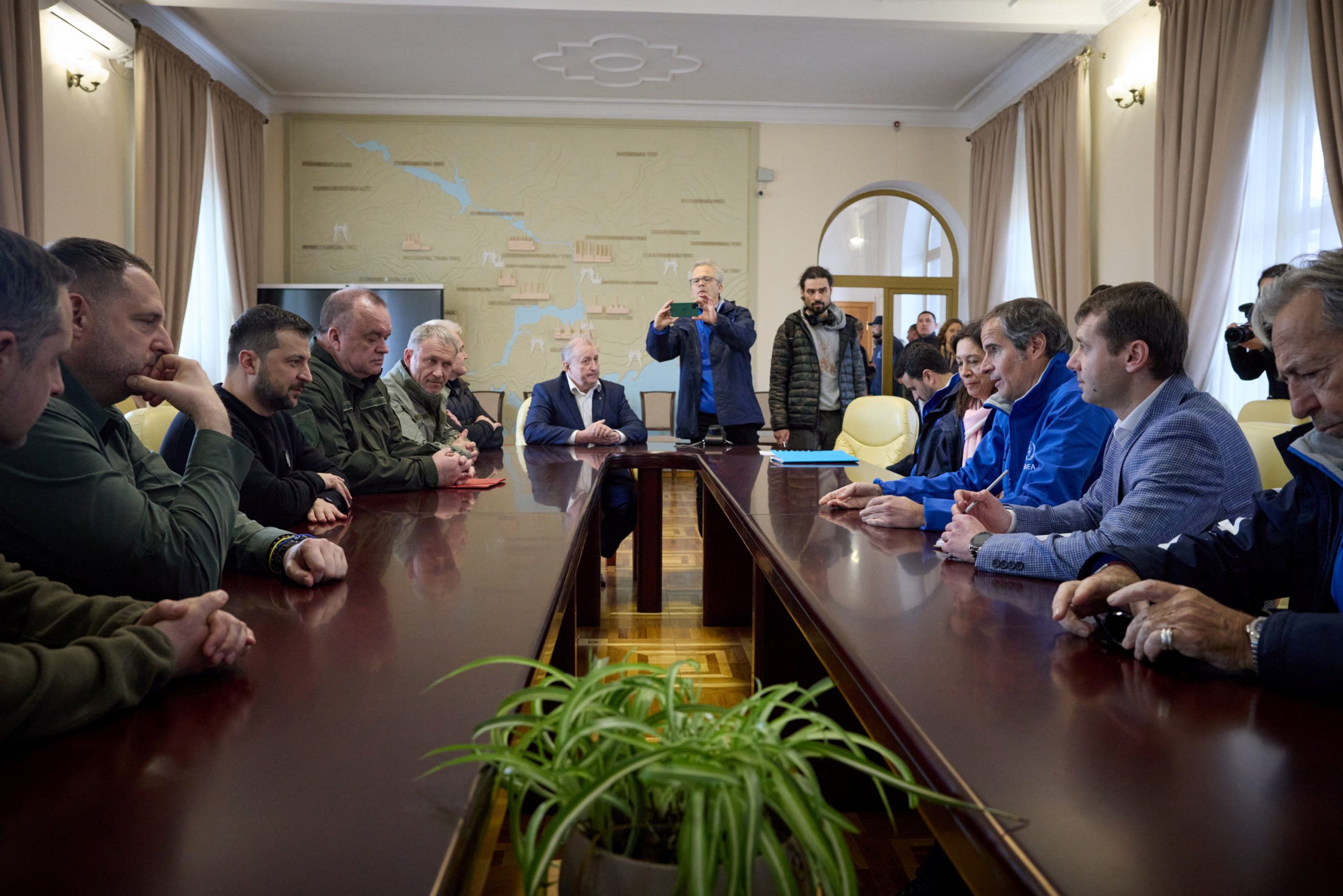
[elfsight_social_share_buttons id=”1″]
The head of the U.N. nuclear watchdog said on Tuesday his attempt to broker a deal to protect Ukraine‘s Russian-occupied Zaporizhzhia nuclear plant was still alive, and that he was adjusting the proposals to seek a breakthrough.
Rafael Grossi, head of the International Atomic Energy Agency, spoke to Reuters a day before he is expected to travel to Europe’s largest nuclear power station in the Russian-occupied Zaporizhzhia region of southeastern Ukraine.
Grossi has been pushing for a safety zone to be created at the plant to prevent a possible nuclear disaster as Moscow and Kyiv have accused each other of shelling the site of the power station since Russia invaded Ukraine in February last year.
“We are making some adjustments on the proposals that we are putting on the table,” Grossi said in an interview in the central Ukrainian city of Dnipro.
“I am confident that it might be possible to establish some form of protection, perhaps not emphasizing so much the idea of a zone, but on the protection itself: what people should do, or shouldn’t do to protect (the plant) instead of having a territorial concept.”
The contours of the proposed deal have not been made public.
Diplomats say Grossi’s latest proposal no longer includes a defined radius around the plant to mark the zone.
Ukraine does not want a deal that will in effect recognize or allow a Russian military presence at the plant. Other elements of Grossi’s plan include no firing at or from the plant, and the removal of heavy weapons.
“I am not giving up in any way. I think on the contrary we need to multiply our efforts, we need to continue,” Grossi said.
He said there had been increasing military activity in the region without giving details.
“VERY DANGEROUS” SITUATION
Grossi, who met President Volodymyr Zelenskyy on Monday, described the situation at the plant as “very dangerous” and very unstable. It has lost its external power supply six times since Russia’s invasion, forcing emergency diesel generators to kick in to cool its reactors.
Grossi said the water level in a nearby reservoir controlled by Russian forces was another potential danger. Water supplied by the reservoir is used to cool the reactors.
“If the reservoir level goes down beyond a certain level, then you don’t have water to cool down the reactors, and we have seen especially in January that the levels of the water were going down significantly. They recovered somehow in the past few weeks,” he said.
The IAEA has had its own monitors stationed at the Zaporizhzhia plant since last year. Grossi blamed a recent delay in their rotation on a row between Russia and Ukraine over the route they were supposed to take.
“We had an agreed route. All of a sudden that route was not agreed anymore … It took an awful lot of time to come to an agreement,” he said.
RUSSIA STILL CALLING FOR NORD STREAM PROBE AFTER UN FAILURE
The Kremlin said on Tuesday it would keep demanding an international investigation into explosions that damaged the Nord Stream gas pipelines under the Baltic Sea last year, after failing to win backing for a probe at the United Nations.
Kremlin spokesman Dmitry Peskov said everyone should be interested in an impartial investigation in order to find the culprits.
“We will do everything in our power to continue to insist and to initiate such an international investigation,” he told a daily conference call with reporters, without specifying what Moscow would do next.
On Monday, Russia failed to get the U.N. Security Council to ask for an independent inquiry into explosions in September that ruptured the Nord Stream gas pipelines connecting Russia and Germany and spewed gas into the Baltic.
Peskov said Russia viewed the outcome at the U.N. “with regret”.
“We believe that everyone should be interested in an objective investigation involving all interested parties, all those who can shed light on who commissioned and perpetrated this terrorist act,” he said.
The pipeline blasts occurred in the exclusive economic zones of Sweden and Denmark. Russia has complained that it has not been kept informed about ongoing investigations by those countries and Germany. It has maintained, without providing evidence, that the West was behind the blasts.
Copyright 2023 Thomson/Reuters
